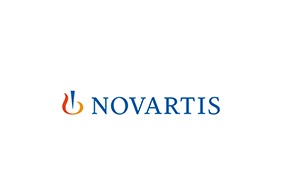'Development Cooperation at a Crossroads: Dead End or New Horizons?' - 8th Annual Symposium of the Novartis Foundation for Sustainable Development
Published 12-08-06
Submitted by Novartis
Opening the symposium, Klaus M. Leisinger, President and CEO of the Novartis Foundation for Sustainable Development, said: "Our generation is the first to have the knowledge and the resources to overcome absolute poverty and its abject associated hardships. So if not now, when? And if not us, who?" He added that "business as usual" would lead to globally unacceptable economic, social, ecological and political inequality and insecurity. He went on to cite the key recommendations of the 1998 World Bank research report on the effectiveness of official development assistance, which remain as valid today as ever: aid should become more selective, more knowledge-based, better coordinated and more self-critical.
Among the speakers at the gathering in Basel was one of the world's most influential development economists - Jeffrey Sachs, Director of the Earth Institute at Columbia University (New York) and Special Advisor to the UN Secretary-General. The Director of the UN Millennium Project, which seeks to eradicate extreme poverty, advocates increased aid budgets and a more targeted development policy, adapted to individual countries' specific circumstances. The aim is to stimulate a self-sustaining growth process: "The key is to invest in essential areas, in schools, hospitals, seeds; practical things that serve to strengthen people."
For Andrew M. Mwenda, Editor of the Ugandan Daily Monitor, potential solutions lie above all in improved tax administration and in internal reforms in developing countries. In his view, money is not the most important factor: "More money is not necessarily the best way to combat poverty; capital is a by-product and not the root of the development process." Taking the argument a step further, Mwenda criticizes Western aid: "All previous efforts to improve development aid have failed, for the obvious reason that precisely this aid is part of the problem."
Walter Fust, Director-General of the Swiss Agency for Development and Cooperation (SDC), stressed the importance of responsibility, innovation and partnership. "A development policy reduced to the Millennium Development Goals cannot address the problems in the relations between OECD countries and developing countries. Development policy needs to enhance poverty eradication efforts as an important - but not exclusive - component while at the same time playing a key role in tackling major global problems."
Mechai Viravaidya, the founder of the Population and Community Development Association in Thailand, takes the view that in the long term wealthier countries' poverty reduction efforts should be run by the private sector - acting in collaboration with civil society, communities and local governments. "The private sector can become the partner of the poor by strengthening their entrepreneurial skills and providing access to loans. The poor can thus themselves become part of the solution. The private sector can deliver these solutions by taking advantage of latent resources such as employees' experience and ideas."
The Foundation's annual symposium is conceived as a platform for critical reflection and controversial discussions, with issues explored and debated from a wide range of perspectives. It attracts an equally diverse audience, including development agency staff, government officials, academics, students and representatives of industry. The level of interest in this year's symposium was exceptionally high. The event was attended by about 600 people.
Photographs and presentations from the symposium are available on the website of the Novartis Foundation for Sustainable Development: www.novartisfoundation.com
About the Novartis Foundation for Sustainable Development
The Novartis Foundation for Sustainable Development is a nonprofit organization whose activities form part of the Corporate Social Responsibility portfolio of Novartis AG, which finances the Foundation's operations. The Foundation's mission is to support healthcare programmes in developing countries, providing help for self-help. Its core competencies also include in-depth analysis, consulting and publications in the fields of corporate ethics and development policy. By harnessing synergies between project work, think tank activities and the facilitation of dialogue, it elaborates innovative strategies for familiar development problems. In 2005, the Novartis Foundation for Sustainable Development invested approx. CHF 10 million in projects, largely in Africa and Asia.
For more information on the Foundation and on specific projects, please visit: http://www.novartisfoundation.com

Novartis
Novartis
Novartis is an innovative medicines company. Every day, we work to reimagine medicine to improve and extend people’s lives so that patients, healthcare professionals and societies are empowered in the face of serious disease. Our medicines reach more than 250 million people worldwide.
More from Novartis

